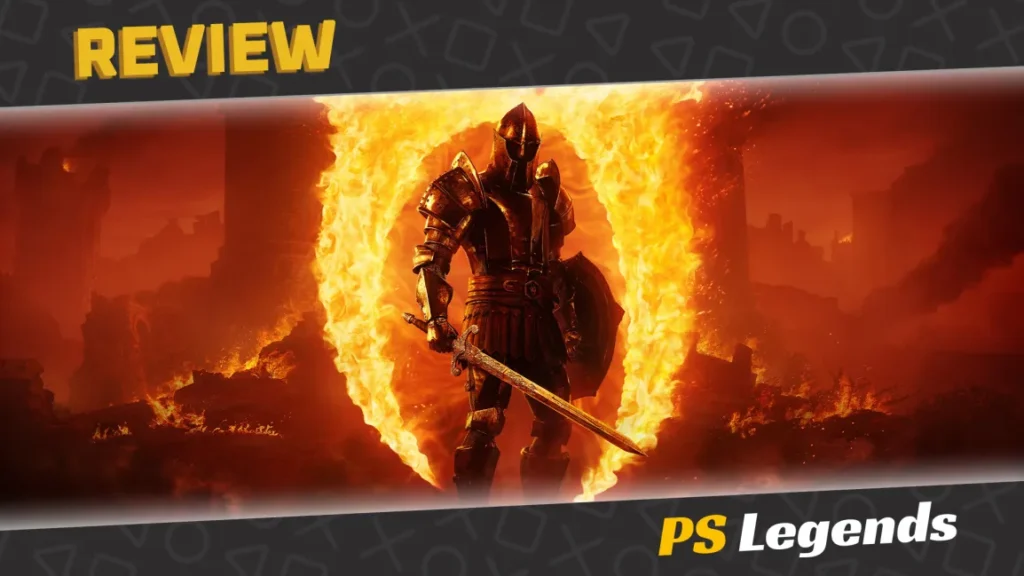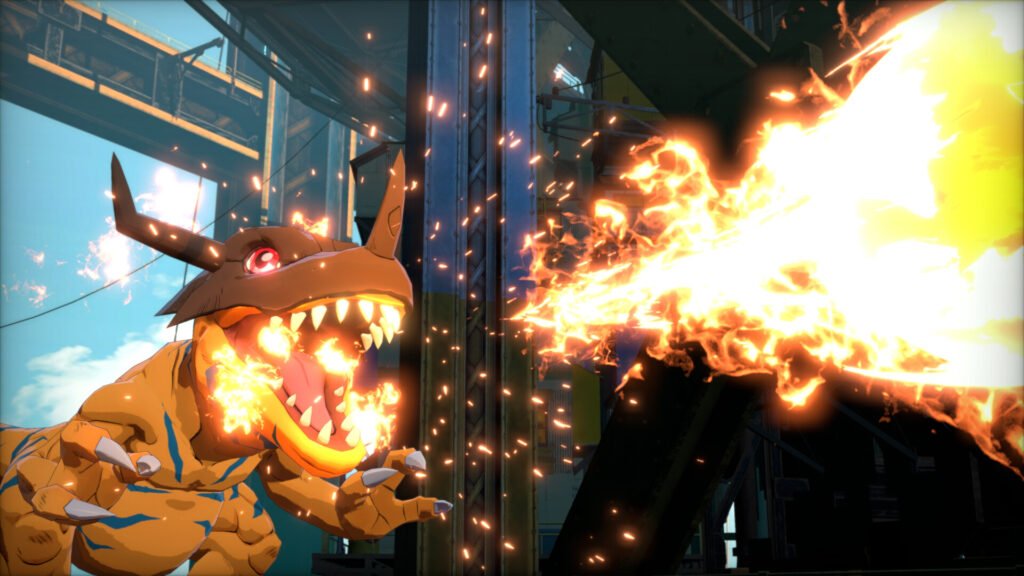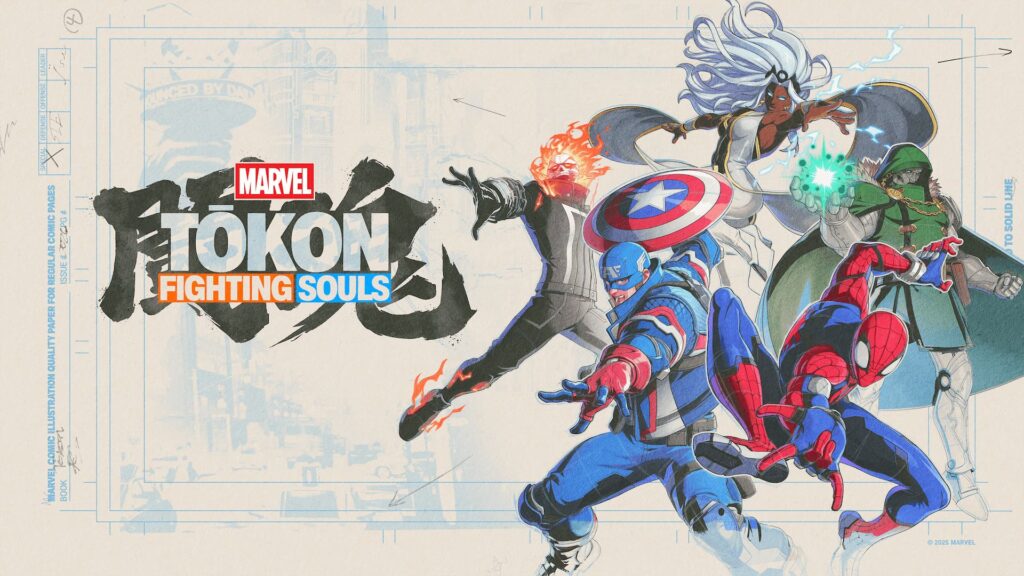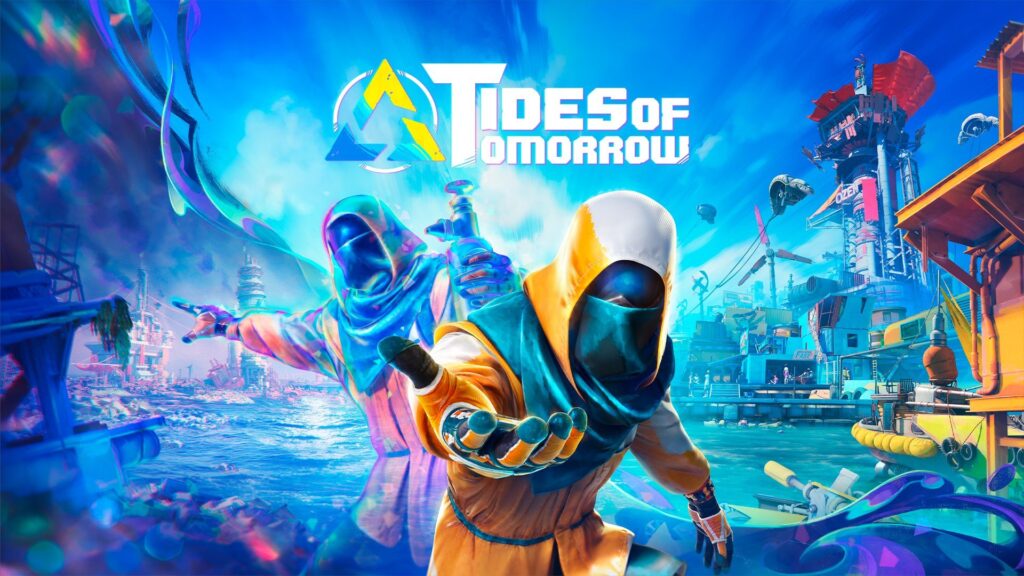Ah, Oblivion. What a game. It was the game that really put the Elder Scrolls series on the map for us console gamers after that long-delayed, ugly version of Morrowind. Skyrim may be the Elder Scrolls game that gains the most attention as a regular ‘go-to’ palate-cleanser experience, but if we go back in time a little further, it wasn’t the only game of its kind.
Like Skyrim, Oblivion was also many things to many people. It too was its own style of calming escapism into a beautiful yet anarchic fantasy world. It arrived during a troubling time of my life, filled with anxiety, abuse, and uncertainty, and so this epic escape was a healing comfort to me, one that I’m eternally grateful for.
While the original game was riddled with bugs at launch, one or two of which massively impacted my progress, I loved my time there so much that such significant errors were still entirely forgivable, and rather small in comparison to the 100+ hours of outstanding RPG excellence that we got in return for our dedication. And considering how easy it was to get absorbed into Bethesda’s iconic world, this really wasn’t too much to ask.
On This Page
Introduction
After over a decade of remaster and/or remake rumours, The Elder Scrolls IV: Oblivion is finally back on current hardware where it belongs, and considering Bethesda’s more recent allegiance to Microsoft and Xbox, the game launching on PlayStation 5 is a victory worth celebrating. The game released as a surprise “ghost drop” launch on 22nd April, 2025.
The game was co-developed by remake/remaster veterans Virtuos, alongside Bethesda Game Studios. Both studios began development of the remaster in secret in 2021. The developers used Unreal Engine 5 to enhance the visuals, while relying on the Gamebryo Engine for core elements like physics and combat. The project co-exists alongside the Rebelzize’s fan-made remake based on the Skyrim engine, known as “Skyblivion”, which is also due to release in 2025.
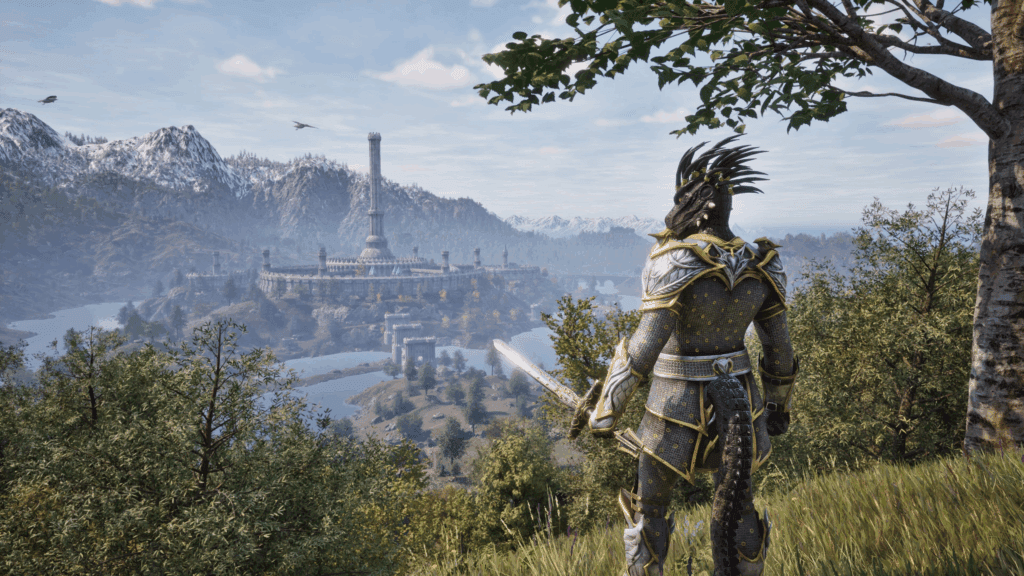
Story
Oblivion is set during the Third Era, six years after the events of The Elder Scrolls III: Morrowind, and around 200 years before the events of The Elder Scrolls V: Skyrim. The game is set in Cyrodiil, the Imperial seat of power in the province of Tamriel, the continent on which all the games in the series have taken place so far.
The story begins with the player’s character imprisoned in a cell for an unknown crime. Emperor Uriel Septim VII (Patrick Stewart), accompanied by Imperial bodyguards known as the Blades, arrives in the prison, fleeing from assassins belonging to a cult known as the Mythic Dawn who have murdered the emperor’s sons and are now targeting him.
The emperor and the Blades reveal that the player’s jail cell contains a secret entrance to a part of the city’s sewer that functions as an escape route. Pardoned by the emperor, the player follows the group into the sewers where the party are ambushed by the assassins and all but the player and a single member of the Blades named Baurus survive.
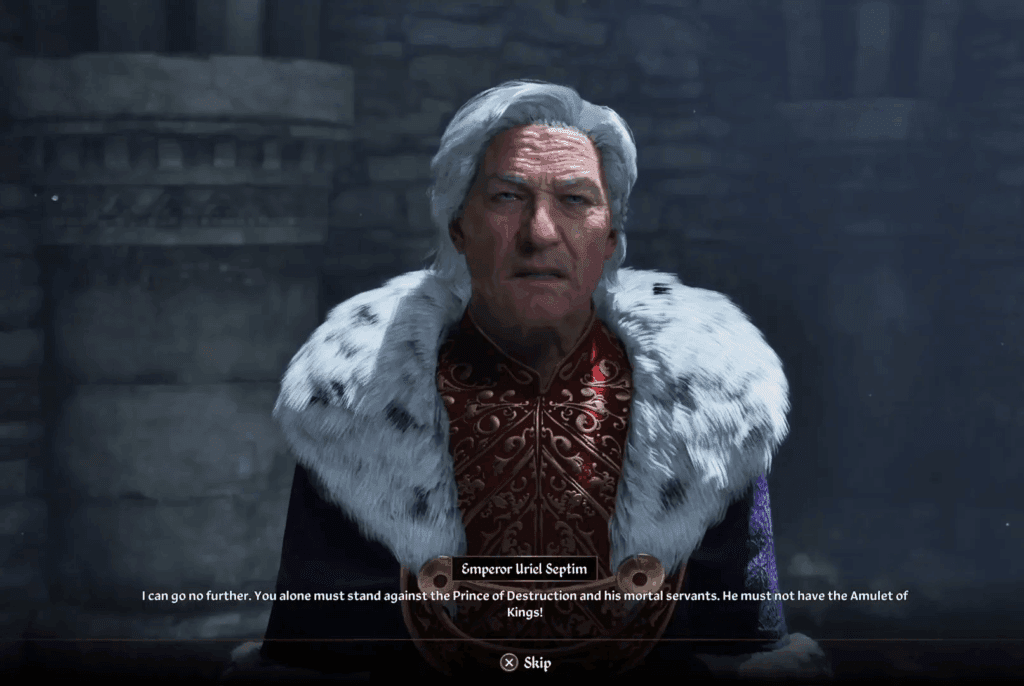
Before his death, Uriel Septim entrusts the player with the Amulet of Kings, worn by the Septim emperors of Tamriel, and orders the player to take it to Jauffre (Ralph Cosham), the grandmaster of the Blades, who will help locate a surviving heir to the throne. The player escapes the sewer and heads out into the open countryside of Cyrodiil.
The present lack of an emperor has broken an old covenant, and with it the barrier protecting Cyrodiil from ‘Oblivion’, a twisted hellscape realm that exists on another plane of reality. Multiple gates to Oblivion’s Deadlands open, and an invasion of Tamriel begins by mystical creatures known as Daedra, killing and destroying anything in their path.
Jauffre tells the player that the only way to close the gates permanently is to find someone of the royal bloodline to retake the throne, claim the Amulet of Kings, and relight the Dragonfires in the Imperial City. It is revealed that there is an illegitimate son named Martin (Sean Bean), who is a priest in the city of Kvatch. The protagonist sets out to Kvatch which is under siege by the Daedra, planning to rescue him and aid in his ascension to the throne.
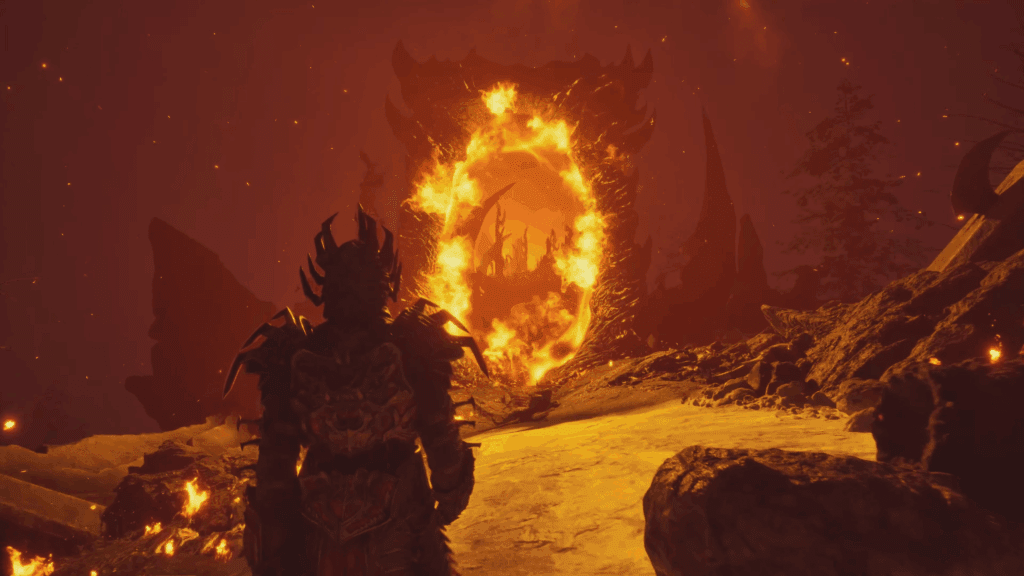
Factions
To say Oblivion has one main storyline would be missing its intentions entirely. The game is more of a collection of quests of varying agendas and complexity. These quests will have the player travel to every corner of Cyrodiil before branching off to their own increasingly dramatic conclusions. The Daedra are far from the only threat that Cyrodiil has to face.
The beloved factions make a welcome return. Completing Guild missions as instructed while resolving internal politics will allow you to work your way up through the ranks of the bureaucratic Mages Guild, the secretive Thieves Guild, the professional Fighters Guild of mercenaries, the unholy Dark Brotherhood assassin clan, and the famous Arena gladiatorial tournament.
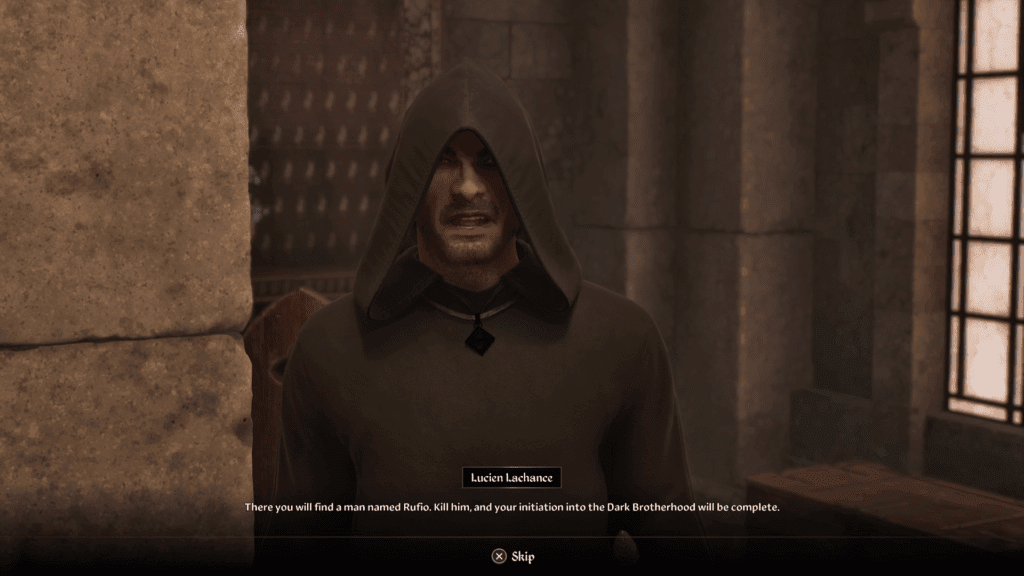
Gameplay
You are a living, breathing part of Cyrodiil, and you’ll soon come to realise that the province is shaped by your actions. Your actions will influence the behaviors of those around you, and in turn, those you meet may just influence your decisions too. Oblivion is easily one of the most gargantuan undertakings that gamers will likely experience in their lifetimes. The size of this journey, both in terms of its game world and in the number of individual quests available to the player, is truly mind-blowing.
Exactly how thorough you are with the options available to you is entirely up to you. Players can spend hours tweaking their weapon and armour setups, becoming a master trader delivering a regular supply of loot to their favourite vendors, investigating haunted crypts and underground caverns, or exploring Cyrodiil’s beautiful countryside on horseback. In every dark cavern there are monsters to fight, in every new town there are new characters to meet, and around every corner there’s some new discovery to be found.
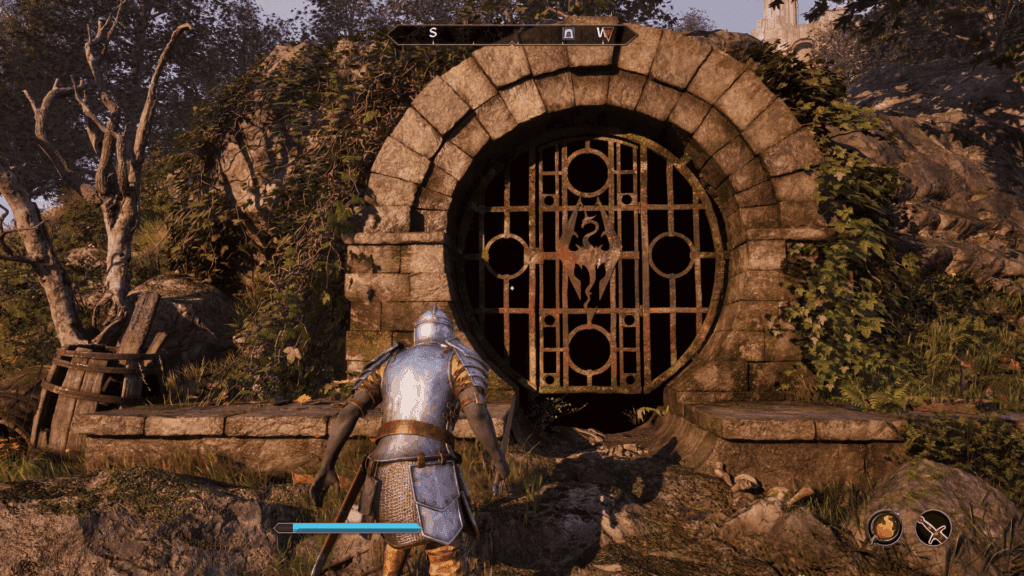
The right and left triggers wield whatever weapon, shield, or magical spell the player assigns to them. Your inventory will quickly fill with all sorts of items that the player may use while adventuring, while other bric-a-brac will need to be sorted, sold, or discarded. Hot-keyed items can be assigned to a radial menu which is accessed by tapping the left bumper button.
Every time the player uses a weapon, spell or skill in Oblivion, their proficiency with that particular skill-set slowly increases. These increasing levels in-turn also increase your character’s general level. With each character ‘level-up’, you’re able to assign 12 skill points across 3 skills of your choosing. Unlike Skyrim and Fallout, the ‘perk’ system does not return here, and instead new passive skills are unlocked after each skill hits 25 levels.
Your proficiency soon grows in the skills you use the most, meaning you’ll quickly strengthen areas that matter the most to you, while you can also gain some rewards for stepping out of your comfort zone and experimenting with other skills which you might otherwise ignore. You can supplement shortfalls in your character build setup by equipping enchanted items which feature handy stat boosts.
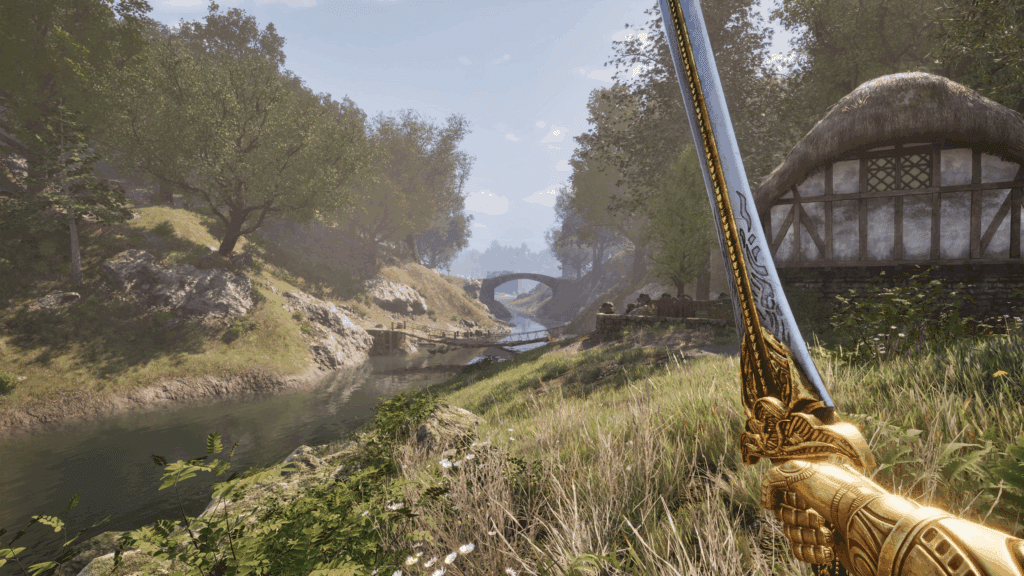
Graphics/Sound
As the player travels through Cyrodiil, they’ll encounter dense woodlands, snow-capped mountains, massive sprawling cities, and crystal-clear rivers dotted across the map. You’ll run into an assortment of interesting characters and battle genuinely intimidating creatures. The visual ambient features of the game feel so incredibly real now and are only enhanced even further by the new addition of beautiful volumetric light rays penetrating the darkness and shimmering on every reflective surface.
We’re blessed with a boosted frame-rate and faster loading times now, and this certainly doesn’t come at the cost of graphical shortcuts. The world itself has honestly never been prettier. The production values work incredibly hard to immerse the player in Bethesda’s iconic fantasy world. For a game of this size, the quality of the graphics and the attention to detail is awe-inspiring. The game also manages to go beyond the beautifully detailed world we also saw in Skyrim by dramatically improving character models.
This time we have fully remade character models which surpass anything the series has brought us before. An expert cast of veteran voice actors deliver superb performances, while several newcomers have joined the roster to expand on the previously limited cast of voices, providing some very welcome variety. The epic score of controversial soundtrack composer Jeremy Soule returns and remains largely untouched, maintaining the unparalleled quality of the game’s first edition.
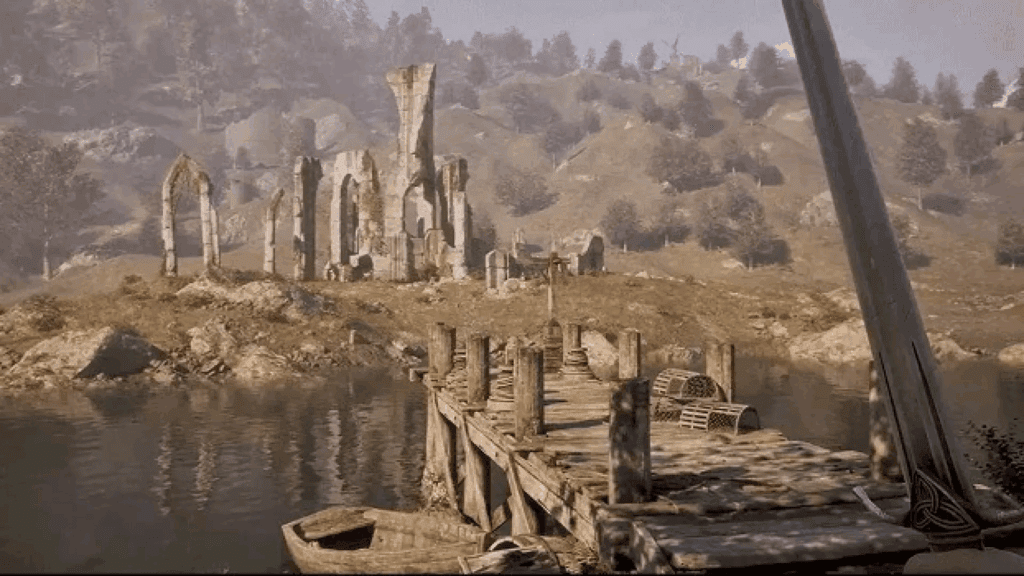
Replayability/Trophies
The trophies in this latest version mirror the mission completion-based achievements from the original Xbox 360 version of the game. You don’t have to do absolutely everything if you want the platinum; finishing the main story and working your way up the ranks of each faction will take care of them all. It’s another enormous Bethesda adventure, and a major time investment is required. It isn’t a game that you ever really ‘finish’ as such; You can take as many breaks as you want, but sooner or later, you’ll be back to tie up loose ends.
Those who played the original through to completion should note that the Shivering Isles expansion pack is already fully integrated into this version of the game, along with the other DLC packs. This means that the Shivering Isles DLC achievements are also represented as trophies here, including one missable trophy. Note that once you get to the rank of Honored Madman and you have the choice of being a Duke of Dementia or a Duke of Mania, you must save before choosing, otherwise you will have to start again.
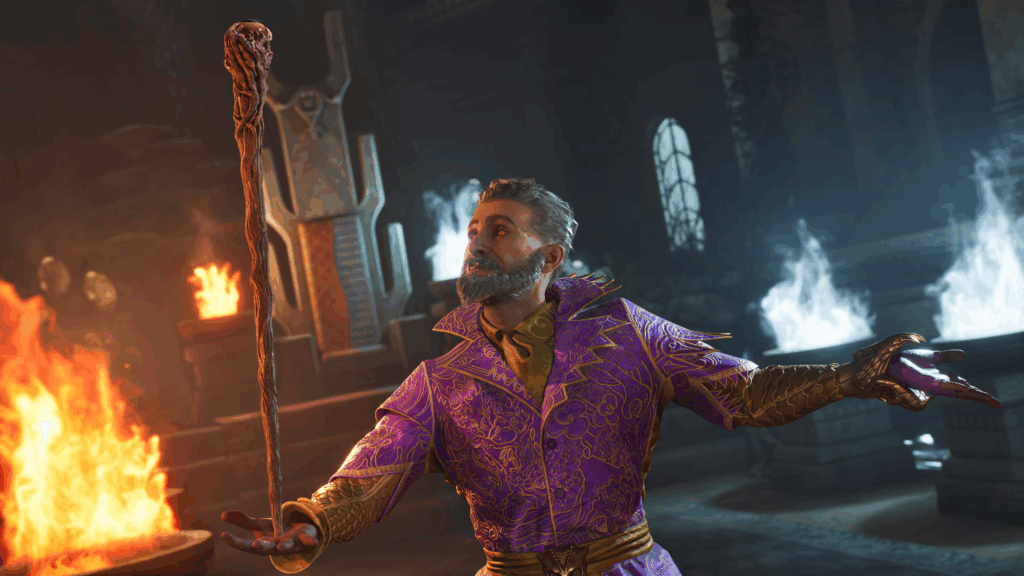
Conclusion
It’s all too easy to get sucked back into that iconic Elder Scrolls magic. I’ve essentially dropped everything else just to dive head-first into Cyrodiil’s enchanting world, and the experience has truly matured like a fine wine. It’s also all too easy to declare a title as impressive and ambitious as Oblivion Remastered a truly perfect package, but to do so would be turning a blind eye to a few little shortfalls.
The remapped control-scheme, for example, generally works well, though there are some differences when compared with Skyrim which will take some getting used to. This isn’t necessarily a bad thing, at least not at first glance, but we do have a small annoyance when we simply want to quickly check our local area map, only to find the map shortcut (down on the D-pad) takes us to the world map instead, which then requires us to zoom in to find the local map.
Recycling the original Xbox 360 achievement list as the new trophy list also doesn’t feel very imaginative. Clearing the main quest and working up through the ranks of each faction is all you need, yet so many other iconic quests, such as clearing the final siege of Kvatch, the Knights of the Nine missions, defeating optional secret bosses, and experimenting with vampirism will go largely unrewarded.
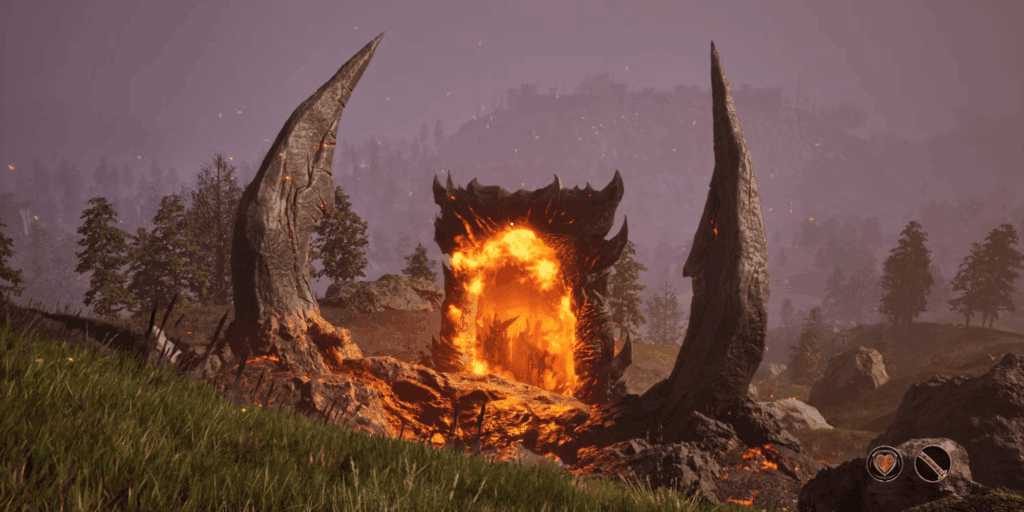
Nevertheless, Oblivion was an impressive package even before its remastery. You only need to look at the voice cast list to see who wanted to be part of this epic party: Sean Bean, Lynda Carter, Patrick Stewart, Terence Stamp, and even a cameo from creator Todd Howard himself. Now however, everything has been rebuilt from the ground up, rather than just re-skinning key components. It’s truly closer to a remake than a typical remaster, and it looks absolutely breathtaking.
I’m also reminded that Oblivion isn’t just Skyrim: The Prequel, no matter how much some of the stories connect and overlap. Oblivion feels different, not so much in our exploration and navigation, but the way Cyrodiil lives and breathes. This isn’t a war-torn Nordic winter wonderland, but a less aggressive era of bustling multicultural diversity and towns of varying wealth and commerce. Oblivion Remastered might not be perfect, but man is it close. What a game. Morrowind remake next please.
Joys
- Phenomenal visual makeover
- Some superb performance tweaks and refinements
- The same amazing adventure underneath
Cons
- Local map not quickly accessible
- Trophies aren’t very creative
